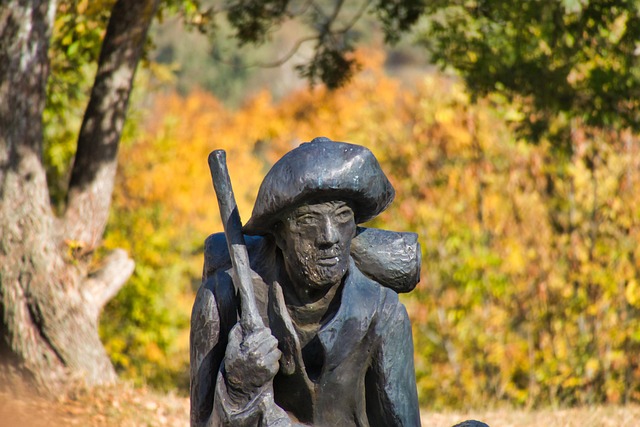Mike Wolfe Passion Project: Reviving America’s Forgotten Stories Through Preservation
Introduction
From the dusty barns and barns sheds of American Pickers to the vibrant streets of small towns across America, the Mike Wolfe passion project has evolved into something far greater than collecting antiques. What began as a fascination with discarded items has grown into a mission to preserve and revitalize America’s heritage—one building, one community, and one story at a time.
This initiative encompasses architectural restoration, community revitalization, storytelling, and support for artisans and small businesses. Through his hands-on work in places like Columbia, Tennessee, and through the cultural presence of Antique Archaeology, Mike Wolfe’s passion project stands as a powerful example of how historic preservation can spark economic growth, cultural pride, and social connection.
Let us dive deeper into the roots, philosophy, key activities, and lasting impact of this inspiring endeavor.
1. Roots: From Childhood Curiosity to Cultural Stewardship
Mike Wolfe’s passion project didn’t start overnight—it grew from a childhood fascination. Raised in Bettendorf, Iowa, Wolfe spent hours scouring garage piles and flea markets, captivated by stories hidden in old tools, signs, and bicycles. Each object was like a time capsule of personal and cultural history.
This curiosity evolved into the hit TV show American Pickers (launched 2010), where he used antiques to spark conversation about heritage and craftsmanship. But Wolfe soon realized that picking alone couldn’t preserve the broader context—especially as he saw barns and historic buildings disappearing during his travels.
2. The Spark: Shifting from Objects to Context
Witnessing the decay of entire structures led Wolfe to a pivotal shift—from rescuing artifacts to preserving environments. Instead of simply removing items from their homes, he aimed to protect the historic spaces themselves.
This expanded vision gave birth to the Mike Wolfe passion project—a pursuit not just of objects, but of context, story, and place.
3. Core Components of the Passion Project
Let’s break down the guiding pillars of Wolfe’s mission:
-
Historic Preservation & Restoration
Wolfe acquires buildings—be they storefronts, gas stations, or entire Main Street structures—and restores them with respect to their original architecture, craftsmanship, and local character. -
Community Revitalization
Restored buildings are repurposed as functional spaces—cafés, galleries, or even community gathering spots—spurring local business, tourism, and pride. -
Storytelling Through Artifacts
Every artifact, sign, or building Wolfe restores carries a narrative. He shares these stories through his shops like Antique Archaeology, blogs, social media, and local media—making heritage accessible. -
Supporting Local Makers and Sustainability
Restoration projects often employ local artisans—builders, craftspeople, and designers—integrating traditional skills into modern use. This supports local economies and promotes sustainable use of existing resources.
4. Spotlight: Columbia, Tennessee—A Case Study
One of the most compelling areas of his work is Columbia, Tennessee, where Wolfe has invested in transforming the town’s architecture and community life.
Key examples include:
-
Revival (Old Esso Gas Station Restored)
A dilapidated Esso gas station was revitalized into Revival, a communal gathering space with vintage charm, modern amenities, and thoughtful design. This hub supports local artisans and hospitality, reigniting community engagement. -
Columbia Motor Alley
Wolfe also restored a historic car dealership and Texaco station, preserving motoring heritage and building a space that blends history with community purpose. -
Two Lanes Guesthouse
This guesthouse is a unique lodging option: part gallery, part antique showcase. Guests stay among historic artifacts while enjoying modern comfort—immersing them in local history and Wolfe’s narrative.
These projects not only preserve physical structures but also shape the economic and social fabric of Columbia.
5. The Role of Antique Archaeology
Wolfe’s locations in LeClaire, Iowa and formerly Nashville, Tennessee, under the brand Antique Archaeology, are more than stores—they are immersive experiences. Each item showcased comes with its backstory, connecting objects to periods, makers, and local histories.
While the Nashville location has closed, the LeClaire shop continues as a spiritual and operational hub for Wolfe’s passion project.
6. Broader Impact: Economic, Cultural, Social
-
Economic Benefits
Historic preservation often increases property values, attracts tourism, and encourages new businesses. Wolfe’s Columbia projects have done just that—revitalizing the downtown economy. -
Cultural Preservation
These restorations maintain architectural identity and community heritage—which chain stores or generic developments might erase. -
Social Connection
Wolfe’s restored spaces are not mere monuments—they are gathering places, conversation starters, and catalysts for local pride.
7. Lessons from the Project
The passion project offers valuable takeaways for anyone interested in preservation:
-
Start Small, Build Momentum
Wolfe began with one building and grew from there. Small wins create credibility and open doors for larger projects. -
Engage the Community
Collaborating with residents and local authorities ensures projects serve real needs and gain support. Get -
Balance Authenticity & Usability
Restorations are historic yet functional—respecting original elements while meeting modern standards. Get -
Focus on Sustainability
Reusing buildings is environmentally friendly—it saves resources and preserves craftsmanship. -
Use Storytelling to Inspire
Artifacts and buildings alone are interesting—but when paired with stories, they become powerful cultural touchpoints.
8. The Vision Ahead
Mike Wolfe’s passion project continues to grow. While Columbia is the current heart, there is potential for expansion to other small towns facing decline. Rumors suggest further sites of Antique Archaeology or new community-centered spaces may emerge in future—and such developments would continue to unite heritage with revitalization.
Even beyond physical spaces, his advocacy—for preservation-friendly policy, creative adaptive reuse, and public awareness—offers a roadmap for cultivating cultural heritage nationwide.
Conclusion
The Mike Wolfe passion project moves beyond picking old things. It is about reviving the soul of small-town America through restoration, storytelling, and community engagement. From his childhood curiosity to his transformative work in Columbia, Tennesee, Wolfe’s journey exemplifies how passion can create real change.
By preserving buildings, elevating stories, and fostering local pride, Wolfe shows us that the past and future can coexist beautifully—and that saving history can be a source of hope, identity, and economic vitality.














Post Comment